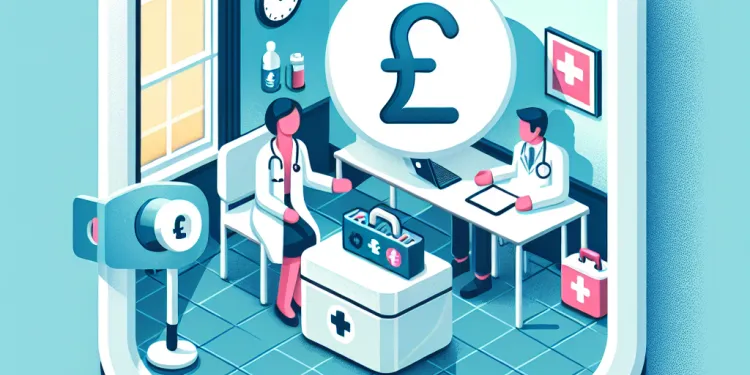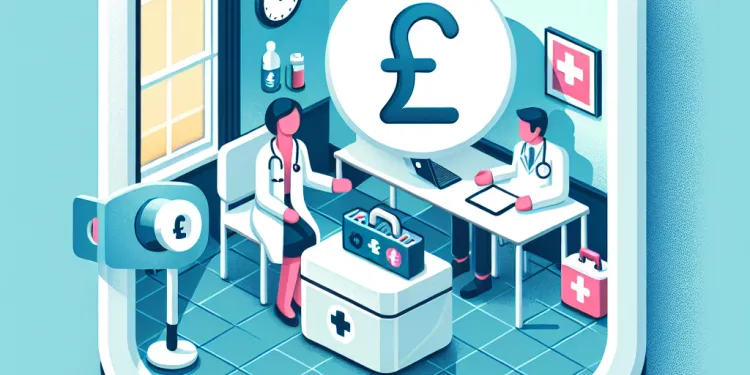
Find Help
More Items From Ergsy search
-

What should I discuss with my doctor before starting Ozempic?
Relevance: 100%
-

What should I discuss with my doctor before starting Ozempic?
Relevance: 99%
-

Is Ozempic safe for everyone to use?
Relevance: 76%
-

What is Ozempic?
Relevance: 74%
-

Do I need a prescription for Ozempic?
Relevance: 74%
-

What is Ozempic?
Relevance: 73%
-

What are the side effects of Ozempic?
Relevance: 70%
-

What should I do if I miss a dose of Ozempic?
Relevance: 69%
-

How often do you take Ozempic?
Relevance: 69%
-

Can Ozempic cause gallbladder problems?
Relevance: 68%
-

Does insurance cover Ozempic?
Relevance: 68%
-
What happens if I overdose on Ozempic?
Relevance: 68%
-

Will insurance cover Ozempic for weight loss?
Relevance: 68%
-

How is Ozempic administered?
Relevance: 68%
-

Who should not take Ozempic?
Relevance: 67%
-

How does Ozempic work?
Relevance: 67%
-

Is Ozempic a form of insulin?
Relevance: 67%
-

Can Ozempic be used for weight loss?
Relevance: 67%
-

What are common side effects of Ozempic?
Relevance: 66%
-

Does Ozempic cause allergic reactions?
Relevance: 66%
-

Is nausea a frequent side effect of Ozempic?
Relevance: 66%
-

Is there a risk of thyroid tumors with Ozempic?
Relevance: 66%
-

How is Ozempic administered?
Relevance: 65%
-

Can Ozempic affect vision?
Relevance: 65%
-

Can Ozempic cause serious side effects?
Relevance: 65%
-

Are there any serious risks associated with Ozempic?
Relevance: 64%
-

Can Ozempic be taken with food?
Relevance: 64%
-

How should Ozempic be stored?
Relevance: 64%
-

Are there warnings about using Ozempic with other medications?
Relevance: 64%
-

Is Ozempic suitable for type 1 diabetes?
Relevance: 64%
-

Can Ozempic be used in conjunction with other weight-loss medications?
Relevance: 63%
-

Can Ozempic cause severe gastrointestinal issues?
Relevance: 63%
-

Can Ozempic lead to dehydration?
Relevance: 63%
-

Can I take Ozempic with other diabetes medications?
Relevance: 63%
-

What populations should use caution when taking Ozempic?
Relevance: 63%
-

Has Ozempic been approved for weight loss?
Relevance: 62%
-

Does Ozempic have an impact on kidney function?
Relevance: 62%
-

What are the common side effects of Ozempic?
Relevance: 62%
-

Can Ozempic cause low blood sugar (hypoglycemia)?
Relevance: 61%
-

What problems is Ozempic known to cause?
Relevance: 61%
Understand Your Health Condition
Before starting Ozempic, it's crucial to discuss your overall health condition with your doctor. Ozempic is a medication primarily prescribed for managing type 2 diabetes and helping control blood sugar levels. Ensure you provide a comprehensive medical history to your doctor, including any other chronic conditions you might have such as heart disease, kidney issues, or liver problems. Understanding your complete health profile will help your doctor determine if Ozempic is the right choice for you.
Review Your Current Medications
Make a list of all the medications, supplements, and herbal products you are currently taking. Some medications can interact with Ozempic, potentially causing side effects or reducing the effectiveness of the treatment. Your doctor needs this information to identify any harmful interactions and adjust dosages or suggest alternatives if necessary. It's particularly important to mention if you are taking insulin or other drugs used to lower blood sugar.
Discuss Potential Side Effects
Like any medication, Ozempic can cause side effects. Common ones include nausea, vomiting, diarrhea, and abdominal pain. Discuss with your doctor what side effects you might expect and how to best manage them should they occur. Understanding these risks will help you make an informed decision and prepare you in case they arise. Moreover, your doctor can provide strategies or medications to mitigate these side effects.
Evaluate Lifestyle and Dietary Changes
Ozempic works most effectively when combined with a healthy lifestyle. Talk to your doctor about what lifestyle modifications you might need to embrace. This can include dietary changes, an exercise plan, or weight management strategies. Your doctor can provide resources or refer you to a dietitian or lifestyle coach to support your health goals alongside Ozempic therapy.
Assess Cost and Insurance Coverage
Consider the cost of Ozempic and how it fits into your healthcare budget, as well as what is covered by the NHS or private insurance. It's beneficial to discuss with your doctor or a healthcare professional to understand potential costs and explore any available financial assistance programs. Knowing the financial aspect is crucial for your long-term treatment planning.
Plan for Regular Monitoring and Follow-ups
Regular check-ups are essential when you're on a medication like Ozempic. Discuss with your doctor how often you should be seen and what types of tests will be necessary to monitor your blood sugar levels and overall health. Setting a schedule for monitoring and follow-ups ensures that the medication is having the desired effect and allows timely adjustments to your treatment plan.
Know About Your Health
Before you start taking Ozempic, talk to your doctor about how healthy you are. Ozempic helps people with type 2 diabetes control their blood sugar. Tell your doctor about any other health problems you have, like heart, kidney, or liver issues. This helps the doctor decide if Ozempic is good for you.
Look at Your Other Medicines
Write down all the medicines, vitamins, or herbs you use. Some medicines mix badly with Ozempic. This could make you feel sick or make Ozempic not work so well. Tell your doctor if you take insulin or other sugar-lowering drugs. This helps the doctor make sure you are safe.
Talk About Side Effects
Medicines like Ozempic can sometimes make you feel unwell. They can cause things like feeling sick, having an upset stomach, or getting a pain in your tummy. Talk to your doctor about what might happen and what to do if it happens. The doctor can also tell you ways to feel better if you get side effects.
Think About Lifestyle Changes
Ozempic works best if you live a healthy life. Ask your doctor what changes you might need to take. This could mean eating better, exercising more, or keeping a healthy weight. Your doctor can help you or tell you about someone who can help you with healthy living.
Check the Cost and Insurance
Find out how much Ozempic costs and if your health plan will pay for it. Talk to your doctor or someone who knows about money help if you need it. Knowing about money matters is important for planning your treatment.
Plan for Doctor Visits
It's important to see your doctor regularly when taking Ozempic. Ask how often you need to go and what tests you might need. This helps check if Ozempic is working and if plans need to change.
Frequently Asked Questions
What is Ozempic, and how does it work?
Ozempic is a medication used to improve blood sugar control in adults with type 2 diabetes. It works by mimicking the function of a hormone called GLP-1, which helps regulate blood sugar levels.
Is Ozempic the right medication for me?
Discuss your current health condition, treatment goals, and any other medications you're taking with your doctor to determine if Ozempic is a suitable option for you.
What are the potential side effects of taking Ozempic?
Common side effects include nausea, vomiting, diarrhea, abdominal pain, and constipation. Discuss any concerns about these side effects with your doctor.
How do I take Ozempic, and how often?
Ozempic is typically administered as a subcutaneous injection once a week. Your doctor can provide instructions on how to self-administer the injections.
Can I take Ozempic if I am pregnant or planning to become pregnant?
You should discuss the risks and benefits of taking Ozempic during pregnancy with your doctor, as it is not recommended during pregnancy.
Will Ozempic interact with any of my other medications?
Provide your doctor with a list of all medications you are taking, including prescriptions, over-the-counter drugs, and supplements, to check for any potential interactions.
How will taking Ozempic affect my blood sugar monitoring routine?
Your doctor can advise you on how frequently you should monitor your blood sugar levels and any adjustments needed in your routine.
What should I do if I miss a dose of Ozempic?
Discuss with your doctor the appropriate steps to take if you miss a dose and when to resume your dosing schedule.
Can I drink alcohol while taking Ozempic?
Your doctor can provide guidance on alcohol consumption, as it may affect your blood sugar levels and interact with your medication.
Will Ozempic help me lose weight?
Ozempic may aid in weight loss for some individuals as a secondary benefit. Discuss your weight management goals with your doctor.
How does Ozempic affect cardiovascular health?
Ozempic has been shown to have cardiovascular benefits in some patients. Discuss how this may impact your treatment plan.
What should I do if I experience severe side effects from Ozempic?
Contact your doctor immediately if you experience severe side effects such as difficulty breathing, swelling, or severe abdominal pain.
Can Ozempic cause hypoglycemia?
Ozempic alone is not likely to cause hypoglycemia, but it can occur if taken with other diabetes medications. Discuss your risk of hypoglycemia with your doctor.
What are the long-term effects of taking Ozempic?
Ask your doctor about the potential long-term effects and benefits of taking Ozempic, as ongoing research continues to unfold.
What tests or monitoring will I need while on Ozempic?
Your doctor may recommend regular blood tests to monitor your blood sugar levels, kidney function, and overall health.
Can Ozempic be used in combination with other diabetes medications?
Ozempic can be used in combination with other medications, but it is essential to discuss with your doctor to optimize your treatment plan.
How does Ozempic impact the risk of pancreatitis?
Discuss the signs of pancreatitis with your doctor as Ozempic may increase the risk, and it is important to recognize symptoms early.
What lifestyle changes should I make while taking Ozempic?
Your doctor can provide guidance on diet, exercise, and other lifestyle modifications to complement your treatment with Ozempic.
Is there anyone who should not take Ozempic?
Individuals with a personal or family history of medullary thyroid carcinoma or multiple endocrine neoplasia syndrome type 2 should not take Ozempic. Discuss your medical history with your doctor.
What should I know about the cost and insurance coverage for Ozempic?
Discuss with your doctor or a pharmacist the cost of Ozempic and available insurance coverage or patient assistance programs that may be applicable to you.
What is Ozempic, and how does it work?
Ozempic is a medicine. It helps people with diabetes. Diabetes is when your blood sugar is too high.
Ozempic helps to keep your blood sugar low. It works by helping your body use sugar the right way.
If you have trouble reading, you can ask someone to read with you. You can also listen to the information using an audio tool.
Ozempic is a medicine that helps people with type 2 diabetes manage their blood sugar. It acts like a hormone called GLP-1, which helps keep blood sugar levels balanced.
If you're finding it hard to understand, try reading with a friend or using an app that reads text aloud. These tools can make it easier to understand health information.
Is Ozempic the right medicine for me?
Ozempic is a medicine that can help some people with health problems.
Talk to your doctor to see if Ozempic can help you. They will check if it is safe for you to use.
Here are some tips to help you decide:
- Ask your doctor lots of questions.
- Tell your doctor about any other medicines you take.
- Tell your doctor about your health. This includes allergies or other health issues.
- Use a notebook or a friend to help you remember what the doctor says.
Remember, your doctor is there to help you. It's okay to ask for more information if you don't understand something.
Talk to your doctor about your health. Tell them what you want from your treatment and what other medicine you take. This will help you both decide if Ozempic is right for you.
What can happen when you take Ozempic?
Some people might feel sick when they take Ozempic. Here are some things you might notice:
- Your tummy might hurt.
- You might feel like throwing up.
- You might not feel hungry.
- You might go to the bathroom more.
If you feel bad, tell an adult you trust. They can help you talk to a doctor.
Tips for Help:
- Use pictures to help understand the words.
- Ask someone to read with you.
- Take breaks if reading is hard.
Some people might feel sick, throw up, have a runny tummy, or have a sore belly. It might also be hard to go to the bathroom. If you are worried about these problems, talk to your doctor. You can write down how you feel each day. This can help you remember what to tell your doctor. Also, you can use pictures or a diary to explain your feelings.
How do I use Ozempic, and how often?
Here is how you use Ozempic:
- Ozempic is a medicine that you inject. This means you use a needle to give it to yourself.
- You usually use it once a week. Pick a day that is easy for you to remember.
Here are some tips to help you:
- Ask an adult to help you if you find it hard to use the needle.
- Use a calendar or a reminder to remember your day each week.
- Talk to your doctor or nurse if you have questions. They can show you how to do it.
Ozempic is a medicine that you take with a small needle under your skin. You only need to do this once every week. Your doctor will show you how to do it yourself.
Can I use Ozempic if I am going to have a baby or want to have a baby?
If you are pregnant or want to become pregnant, ask your doctor if you can take Ozempic.
You should also talk to your doctor about the best way to stay healthy when you are expecting a baby.
A good idea is to have a family member or friend help you understand any information from the doctor.
Talk to your doctor about taking Ozempic if you are pregnant. It is usually not safe for pregnant women to take Ozempic. Your doctor can help you understand what is best for you and your baby.
Will Ozempic mix with my other medicines?
Show your doctor a list of all the medicines you take. This includes medicine the doctor gives you, things you buy at the store, and vitamins. Your doctor can check if they work well together.
How does taking Ozempic change how I check my blood sugar?
Ozempic is a medicine for people with diabetes. It helps to control blood sugar. If you start using Ozempic, talk to your doctor or nurse. They will tell you when and how to check your blood sugar.
Here are some tips to help you:
- Use a blood sugar meter to check your levels.
- Write your blood sugar results in a notebook or use an app.
- Ask a family member or friend to help you if needed.
Remember, it's important to keep your blood sugar at the right level to stay healthy.
Your doctor can tell you how often to check your blood sugar. They can also help if you need to change anything in your daily routine.
What if I forget to take my Ozempic?
If you forget to take your Ozempic, don't worry. Here’s what to do:
- Take the dose as soon as you remember, if it is not too close to your next dose.
- If it is almost time for your next dose, skip the missed dose. Do not take two doses at the same time.
- If you are not sure what to do, ask an adult for help or call your doctor.
Use a calendar or set a reminder on your phone to help you remember to take your medicine.
Talk to your doctor about what to do if you forget to take your medicine. Ask them when you should start taking it again.
Can I have alcohol when using Ozempic?
It's important to check with your doctor if you can drink alcohol while taking Ozempic. Your doctor can give you the best advice.
Here are some tips:
- Ask your doctor about drinking alcohol.
- When talking to your doctor, write down what they say.
- If you're unsure, ask your doctor again.
Remember, it’s always good to ask if you have questions!
Your doctor can help you understand drinking alcohol. It can change your blood sugar and might not go well with your medicine.
Can Ozempic help me lose weight?
Ozempic is a medicine that some people use to help lose weight. It is important to talk to a doctor before taking Ozempic to see if it is right for you.
If you find reading hard, you can:
- Ask a friend or family member to read with you.
- Use text-to-speech tools that can read the text aloud.
- Look for videos or pictures that explain what you read.
Ozempic can help some people lose weight. Talk to your doctor about your weight goals.
How does Ozempic affect heart health?
Ozempic is a medicine that can help people with diabetes. It might also help your heart. This means it can make your heart stronger and healthier.
If you have questions, talk to your doctor. They can help explain how Ozempic works for your heart.
Here are some things that might help you understand better:
- Use pictures to help explain. Drawing a strong heart can show how Ozempic works.
- Ask someone to read with you. They can help you understand new words.
- Take your time when learning about Ozempic and heart health.
Ozempic might help your heart. Talk to your doctor about how this could change your treatment plan.
What if I feel very sick from taking Ozempic?
If you feel very sick after taking Ozempic, tell your doctor or nurse right away.
Ask someone to help you call if you feel too sick.
You can also use a phone app to remind you to take your medicine correctly.
Keeping a journal can help: Write down how you feel every day after taking your medicine.
Call your doctor right away if you have bad side effects. These can be trouble breathing, swelling, or a very bad tummy ache.
Can Ozempic make your blood sugar too low?
Taking Ozempic by itself often does not cause low blood sugar. But if you take it with other diabetes medicine, it might happen. Talk to your doctor to find out if you have a risk of low blood sugar.
What happens if you take Ozempic for a long time?
Talk to your doctor to understand what happens if you take Ozempic for a long time. Scientists are still learning more about it.
What check-ups will I need when taking Ozempic?
If you are taking Ozempic, you need to visit your doctor for check-ups. These visits help make sure the medicine is working well for you. Here are some things you might need:
- Blood Tests: The doctor may ask for blood tests to check your sugar levels.
- Weight Checks: The doctor will check your weight to see if the medicine is helping.
- Blood Pressure: The doctor might check your blood pressure to make sure it is normal.
If you have any questions about Ozempic, ask your doctor or nurse. They can help explain things in a way that is easy to understand.
It can be helpful to use pictures, charts, or a friend to help you remember the information. Bringing a notebook to write down what the doctor says can also be useful.
Your doctor might ask you to have blood tests often. This helps check how much sugar is in your blood. It also helps check your kidneys and see how healthy you are.
Can Ozempic be taken with other diabetes medicine?
Ozempic is a medicine to help people with diabetes. Sometimes, you may take more than one medicine to feel better. It’s important to talk to your doctor. They can tell you if it’s safe to take Ozempic with other diabetes medicine.
Here are some tips to help you:
- Always ask your doctor or nurse if you have questions.
- Write down the names of all the medicines you take.
- Use a pill organizer to keep track of your medicine.
Ozempic can be used with other medicines. Talk to your doctor to make sure you are getting the best treatment.
What does Ozempic do to the risk of having pancreatitis?
Talk to your doctor about signs of a sore pancreas. Taking Ozempic might make it more likely to happen, so it's important to know what to look for.
How should I change my daily habits when I take Ozempic?
When you take Ozempic, it's good to make some changes in how you live. Here are some simple steps you can follow:
- Eat healthy foods. Try to eat more fruits and vegetables.
- Move your body. Play outside, walk, or do any fun activity.
- Drink lots of water. It helps to stay strong and healthy.
- Rest well. Make sure you get plenty of sleep each night.
- Ask for help. If you find it hard, talk to someone you trust.
These changes can help you feel better while taking Ozempic. Remember, you can always ask your doctor for more advice!
Your doctor can help you with eating, exercise, and other changes to your daily life to work well with your Ozempic medicine.
Who should not use Ozempic?
Some people should not take Ozempic. It is important to talk to a doctor.
If you have these problems, tell your doctor:
- Allergies to medicines
- Pancreas problems
- Thyroid cancer
Remember to always ask for help if you are not sure. You can use pictures or talk with someone you trust to understand better.
If you or someone in your family has had medullary thyroid cancer or a condition called multiple endocrine neoplasia syndrome type 2, you should not take Ozempic. Talk to your doctor about your health history.
What do I need to know about the cost and insurance for Ozempic?
How much does Ozempic cost?
Ozempic can be expensive. Prices may vary depending on where you buy it.
Will my insurance pay for Ozempic?
Insurance might help pay for Ozempic. Check with your insurance provider to find out.
What if I cannot afford it?
If Ozempic is too expensive, talk to your doctor or pharmacist. They might know of special programs to help.
Tip: Ask someone to help you read and understand the information. You can also use apps that read text out loud.
Talk to your doctor or a pharmacist about how much Ozempic costs. They can also tell you if your insurance can help pay for it, or if there are programs to help you pay.
Useful Links
Have you found an error, or do you have a link or some information you would like to share? Please let us know using the form below.
-->
This website offers general information and is not a substitute for professional advice.
Always seek guidance from qualified professionals.
If you have any medical concerns or need urgent help, contact a healthcare professional or emergency services immediately.
Some of this content was generated with AI assistance. We’ve done our best to keep it accurate, helpful, and human-friendly.
- Ergsy carfully checks the information in the videos we provide here.
- Videos shown by Youtube after a video has completed, have NOT been reviewed by ERGSY.
- To view, click the arrow in centre of video.
- Most of the videos you find here will have subtitles and/or closed captions available.
- You may need to turn these on, and choose your preferred language.
- Go to the video you'd like to watch.
- If closed captions (CC) are available, settings will be visible on the bottom right of the video player.
- To turn on Captions, click settings .
- To turn off Captions, click settings again.
More Items From Ergsy search
-

What should I discuss with my doctor before starting Ozempic?
Relevance: 100%
-

What should I discuss with my doctor before starting Ozempic?
Relevance: 99%
-

Is Ozempic safe for everyone to use?
Relevance: 76%
-

What is Ozempic?
Relevance: 74%
-

Do I need a prescription for Ozempic?
Relevance: 74%
-

What is Ozempic?
Relevance: 73%
-

What are the side effects of Ozempic?
Relevance: 70%
-

What should I do if I miss a dose of Ozempic?
Relevance: 69%
-

How often do you take Ozempic?
Relevance: 69%
-

Can Ozempic cause gallbladder problems?
Relevance: 68%
-

Does insurance cover Ozempic?
Relevance: 68%
-
What happens if I overdose on Ozempic?
Relevance: 68%
-

Will insurance cover Ozempic for weight loss?
Relevance: 68%
-

How is Ozempic administered?
Relevance: 68%
-

Who should not take Ozempic?
Relevance: 67%
-

How does Ozempic work?
Relevance: 67%
-

Is Ozempic a form of insulin?
Relevance: 67%
-

Can Ozempic be used for weight loss?
Relevance: 67%
-

What are common side effects of Ozempic?
Relevance: 66%
-

Does Ozempic cause allergic reactions?
Relevance: 66%
-

Is nausea a frequent side effect of Ozempic?
Relevance: 66%
-

Is there a risk of thyroid tumors with Ozempic?
Relevance: 66%
-

How is Ozempic administered?
Relevance: 65%
-

Can Ozempic affect vision?
Relevance: 65%
-

Can Ozempic cause serious side effects?
Relevance: 65%
-

Are there any serious risks associated with Ozempic?
Relevance: 64%
-

Can Ozempic be taken with food?
Relevance: 64%
-

How should Ozempic be stored?
Relevance: 64%
-

Are there warnings about using Ozempic with other medications?
Relevance: 64%
-

Is Ozempic suitable for type 1 diabetes?
Relevance: 64%
-

Can Ozempic be used in conjunction with other weight-loss medications?
Relevance: 63%
-

Can Ozempic cause severe gastrointestinal issues?
Relevance: 63%
-

Can Ozempic lead to dehydration?
Relevance: 63%
-

Can I take Ozempic with other diabetes medications?
Relevance: 63%
-

What populations should use caution when taking Ozempic?
Relevance: 63%
-

Has Ozempic been approved for weight loss?
Relevance: 62%
-

Does Ozempic have an impact on kidney function?
Relevance: 62%
-

What are the common side effects of Ozempic?
Relevance: 62%
-

Can Ozempic cause low blood sugar (hypoglycemia)?
Relevance: 61%
-

What problems is Ozempic known to cause?
Relevance: 61%


